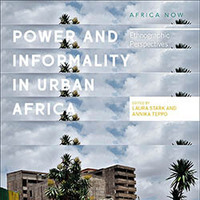Search
Books+
Searching 1,730 books
Search related to the career Urban Planner
Responsibilities of an Urban Planner:
Urban planners are professionals who play a crucial role in shaping and improving cities and communities. Their responsibilities include:
1. Research and Analysis:
Urban planners conduct extensive research and analysis to understand the current state of a city or region. They collect data on demographics, land use, transportation, infrastructure, and environmental factors.
2. Land Use Planning:
One of the primary responsibilities of urban planners is to develop land use plans. They assess the needs of the community and create strategies for the appropriate use of land, including residential, commercial, industrial, and recreational areas.
3. Zoning and Development:
Urban planners work on zoning regulations, which define how land can be used and what types of buildings can be constructed in different areas. They review development proposals, ensuring compliance with zoning codes and regulations.
4. Transportation Planning:
Urban planners focus on creating efficient transportation systems. They develop plans for roads, highways, public transit, and pedestrian infrastructure to improve mobility and reduce congestion.
5. Environmental Planning:
Considering the environmental impact is a crucial responsibility of urban planners. They work on strategies to promote sustainability, protect natural resources, and mitigate the effects of climate change.
6. Community Engagement:
Urban planners engage with the community to understand their needs, aspirations, and concerns. They organize public meetings, workshops, and surveys to gather input and ensure that planning decisions reflect the community's interests.
7. Policy Development:
Urban planners contribute to the development of policies and regulations that guide urban development. They collaborate with government officials, stakeholders, and experts to create effective policies addressing issues such as affordable housing, economic development, and social equity.
8. Urban Design:
Urban planners work on the design of public spaces, streetscapes, and urban landscapes. They aim to create visually appealing and functional environments that enhance the quality of life for residents.
9. Project Management:
Urban planners often oversee the implementation of planning projects. They coordinate with various stakeholders, manage budgets, and ensure that projects are completed on time and within the set guidelines.
10. Monitoring and Evaluation:
After implementing plans, urban planners monitor and evaluate their effectiveness. They assess whether the desired goals and outcomes have been achieved and make adjustments if necessary.
Overall, urban planners have a multifaceted role that involves research, analysis, policy development, community engagement, and project management to create sustainable, livable, and inclusive cities.
Source: Various AI tools
Searched in English.
















